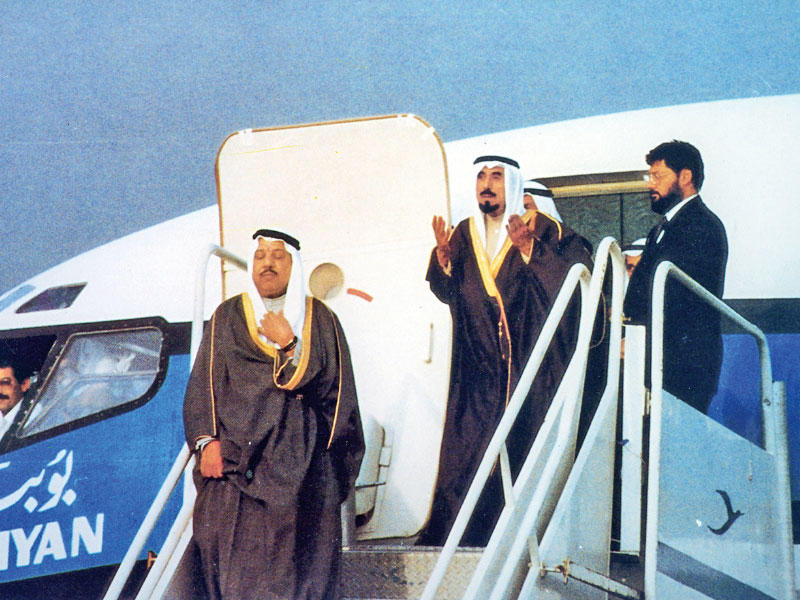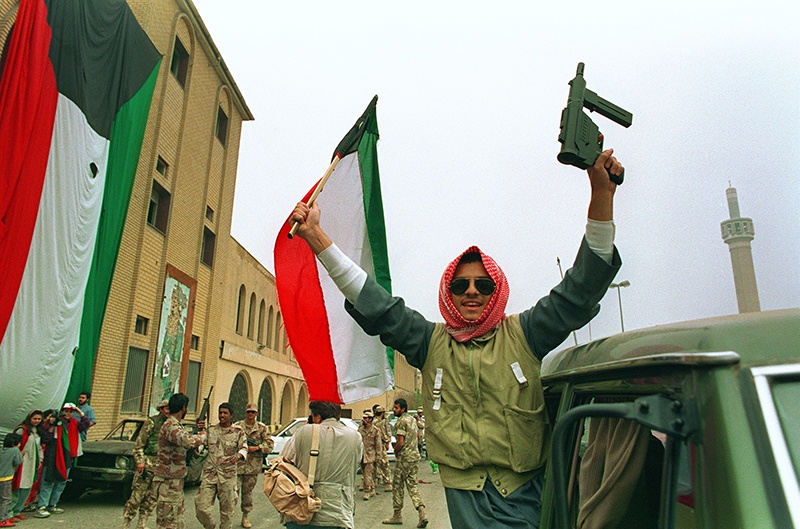
KUWAIT: Today, August 2, marks the 30th anniversary of Iraq's invasion of Kuwait, a day remembered by all Kuwaitis who suffered from the aggressors but with determination to defeat them. Kuwaiti people remember with pain the invasion by their neighbor, Iraq - however, they demonstrate how they also overcame their wounds and forgive.

HH the Amir Sheikh Sabah Al-Ahmad Al-Jaber Al-Sabah's visit to Iraq on June 19, 2019 was a clear demonstration of an honest will to promote bilateral agreements and overcome differences to move forward for better future. It is today when Kuwaitis remember that it was on August 2, 1990, that the defunct Iraqi regime sent its troops across the borders into Kuwaiti territories and occupied the country in an attempt to topple the legitimate leadership, sovereignty and independent identity.

Citizens rejected that blatant aggression and stood united to defend their country, rejecting all orders by the occupying forces which subjected them to arrest, torture and in many cases murder. The Iraqi forces adopted the scorched earth policy, setting on fire 752 oil wells before they fled from the US-led international coalition in 1991.

The international community did not sit and watch. UN Security Council condemned the Iraqi invasion and approved a set of decisive resolutions, like 660, which urged the Iraqi regime to immediately withdraw, imposed economic sanctions and paved the way for use of force. Arab and Western countries condemned the defunct Iraqi regime and demanded an immediate pullout.

The Kuwaiti people also remember the relentless efforts by their leadership which contributed to the liberation of their nation. HH the Amir Sheikh Sabah, then foreign minister, succeeded in drumming Arab and international diplomatic support for the Kuwaiti just cause. Kuwait, since the liberation and until 2001, adopted a foreign policy based on UN resolutions related to the Iraqi invasion, namely resolution 687 (1991). This foreign policy, from 2003 onward, stipulated that the defunct Iraqi regime could not be trusted and the Iraqi people were a victim of this regime.

"We differentiate between the regime and the people, and cannot hear about a brotherly people starving and poor" and don't act, HH the Amir Sheikh Sabah had said. Kuwait, therefore, started sending humanitarian aid for the Iraqi people since 1993, and Kuwait Red Crescent Society began sending assistance for Iraqi refugees in Iran starting April 1995. Kuwait continued offering assistance to refugees in Iraq after the 2003 war of liberation of Kuwait, and donated, in April 2008, $1 million to the UN refugee agency (UNHCR).
Kuwait offered another $1 million to UNHCR in November 2010 to help internally displaced people (IDPs) who were forced to leave their homes to safer places. Kuwait donated $3 million to UNHCR on July 11, 2014 for humanitarian operations in Iraq, and $200 million in 2015 to help the IDPs. Kuwait charities provided more than 12,000 food boxes to IDPs in Iraq's Kurdistan region during the holy month of Ramadan in 2016, and 40,000 boxes in 2018.
Kuwait, during a donor conference for Iraq in July 2016, pledged $176 million. Kuwait also hosted an international conference for the reconstruction of Iraq in February 2019, which pledged $30 billion worth of loans, credit facilities and donations. - KUNA












